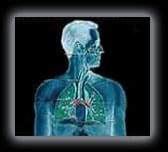Oncology
 |
||
| Reference Library Home | ||
Calculators |
||
| Absolute Neutrophil Count (ANC) Calc Advanced Opioid (Pain Mgmt) Converter Body Surface Area-BSA Body Surface Area – Multi-calc Carboplatin – AUC Calculator NSAID Selection Calculator |
||
Drug Tables |
||
| Anti-Emetics | Opioids / Combination products | Patient Controlled Analgesia-PCA |
| Oncology-(Selected new agents) | Prostate Cancer | |
Oncology Intravenous Dilution Section |
||
Alphabetical Listing – Antineoplastic and Related Agents |
||
Medical Articles / News / Other |
||
Extravasation Management |
||
| Chemotherapy vesicant & irritant properties and suggested management for extravasation
Always stop infusion of the causative medication first and, if appropriate, elevate the affected extremity. The venous access should not be removed immediately, since it can be used to attempt aspirating extravasated fluid and for administration of an antidote, if clinically appropriate. If an antidote is not going to be used, the venous access can be removed after aspiration of the extravasated fluid has been attempted. In general–aside from the exceptions listed below–keeping the extravasation cold is preferable to cause vasoconstriction, to prevent spread of the medication, and to decrease inflammation/pain. Some medications are more likely to have vesicant properties in high concentrations or large volumes. |
Common LAB Values Renal Dosing
Internal Medicine Sections
- Cardiology
- Critical Care
- Dermatology
- Endocrinology
- ENT (Ear, Nose, Throat) + Cough/cold
- Gastroenterology
- Geriatrics
- Hematology
- Hepatology
- Infectious Disease
- Internal Medicine Sections
- Miscellaneous Medical Sections
- Nephrology
- Nutrition / Diet
- Oncology
- Pain Management / Palliative Care
- Pediatrics
- Pharmacokinetics – Calculators, Tools, Etc.
- Psychiatry
- Pulmonary
- Rheumatology
- Toxicology
- Urology
